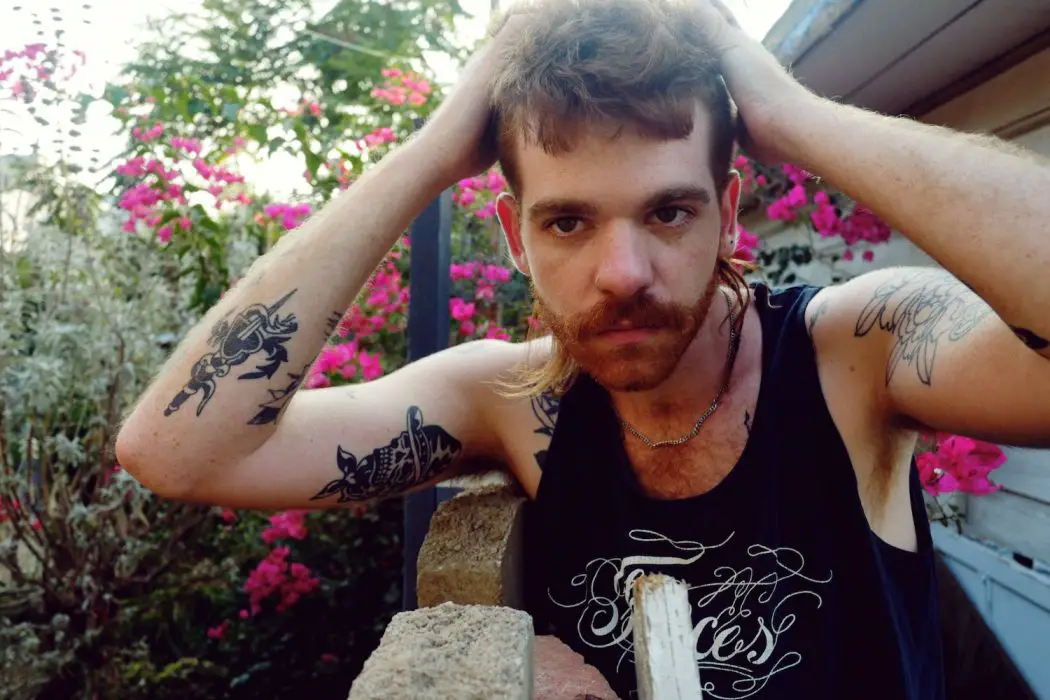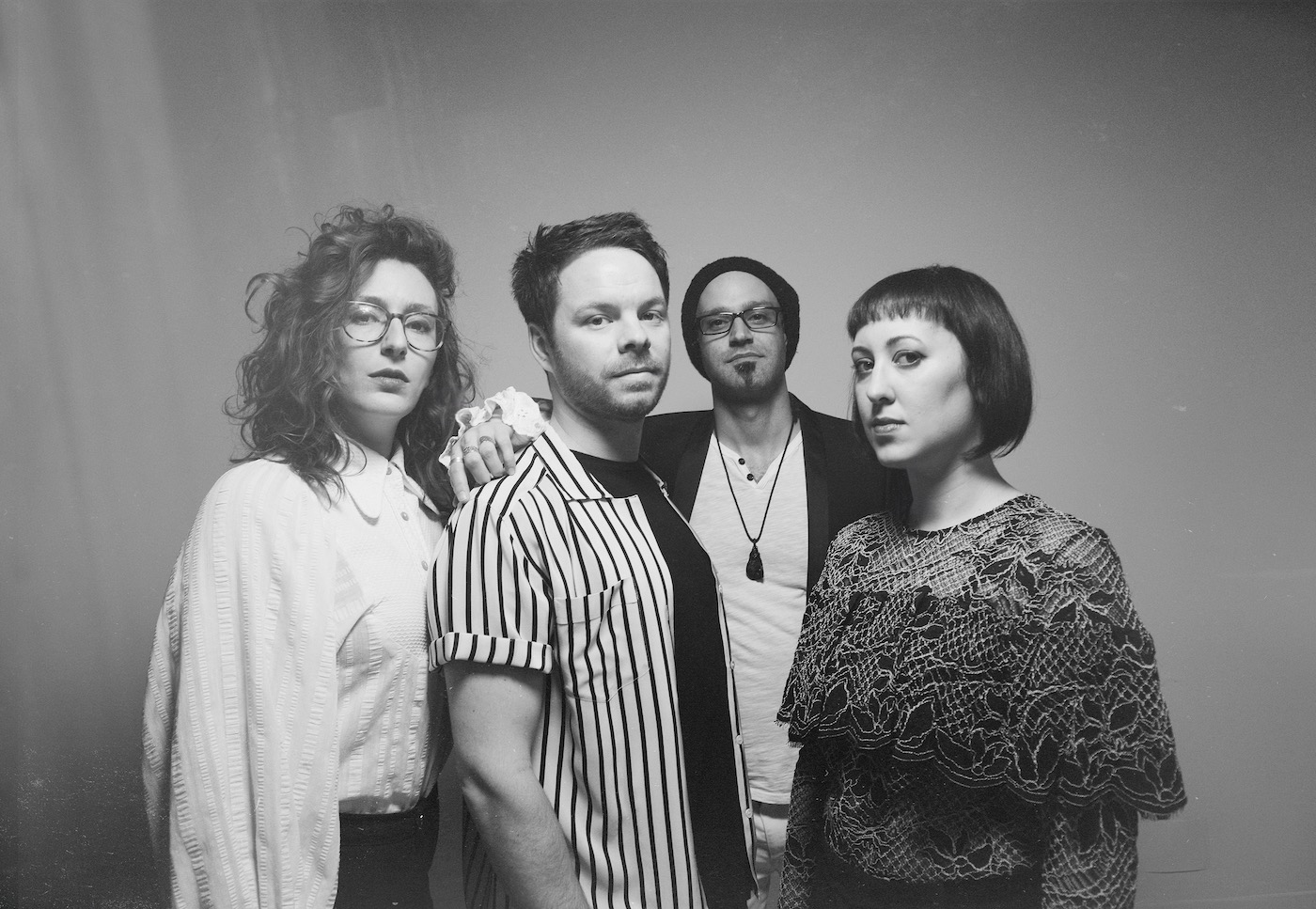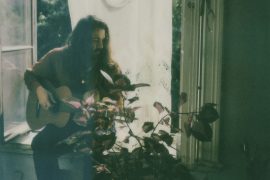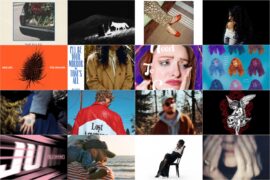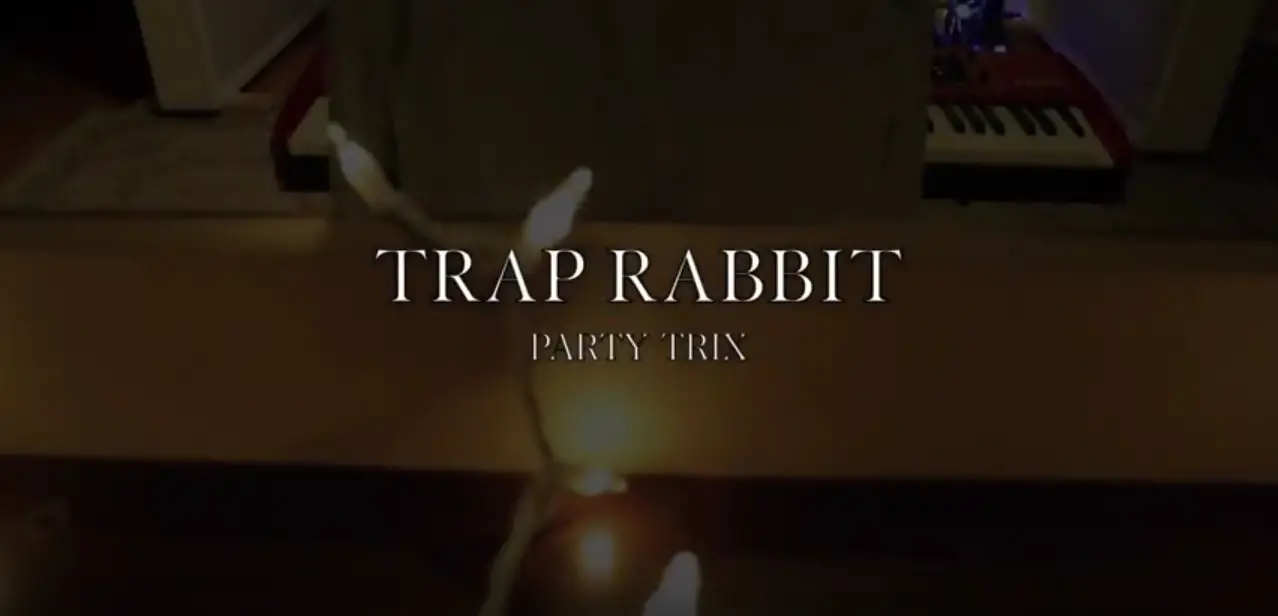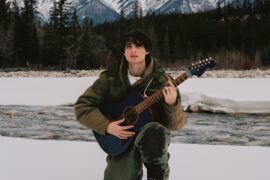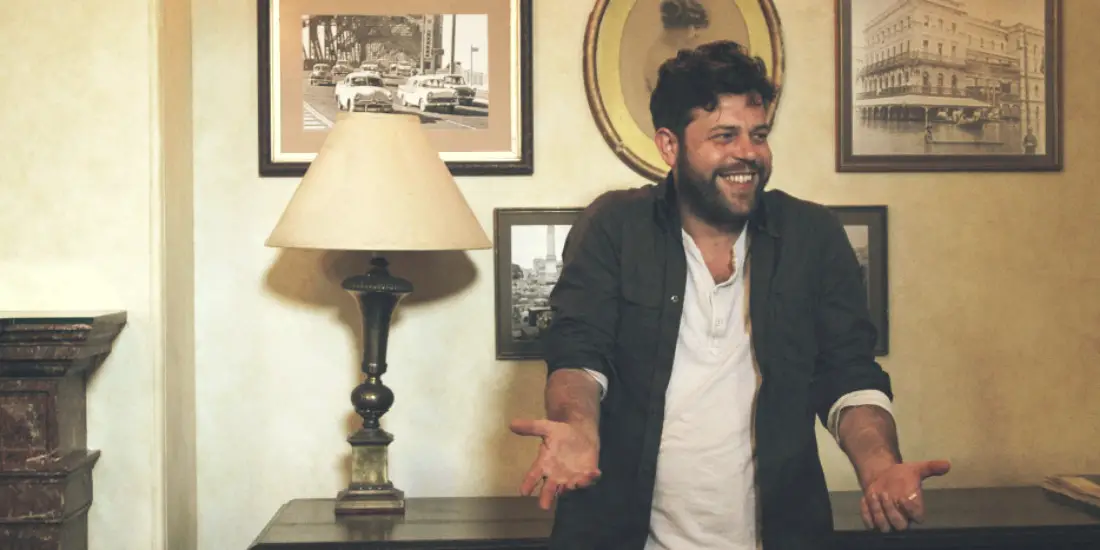Field Medic (AKA singer/songwriter Kevin Patrick Sullivan) discusses honesty in songwriting and how getting sober shaped his new record, ‘Floral Prince’.
Stream: “HEADCASE” – field medic
Kevin Patrick Sullivan, better known as Field Medic, embraces embarrassment. His songs are like diary entries, sometimes even recorded on the first take. Calling it the “full-time freestyle” mentality, Sullivan blends improvisation techniques with lo-fi recording methods, resulting in acoustic confessionals covering everything from growing older to getting sober.
This last spring, Sullivan was on the road in support of his 2019 release, fade into the dawn. When his tour was interrupted by the pandemic, he returned home, quilted together old and new songs and released Floral Prince. On the folk artist’s latest album, he laments his youth but celebrates growth. Newly sober and coming to terms with aging, Field Medic refuses to look back.
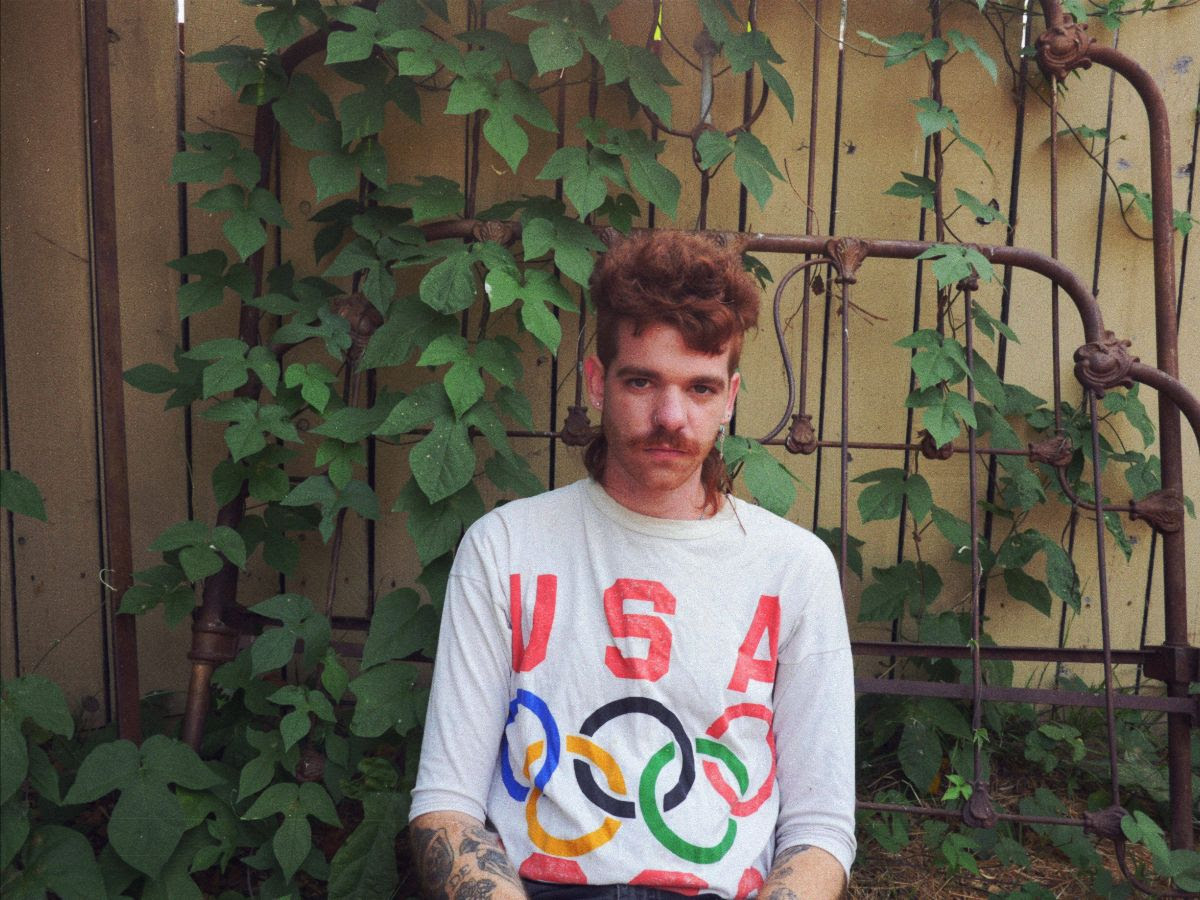
A CONVERSATION WITH FIELD MEDIC
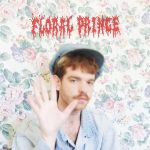
Atwood Magazine: Tell me about the full-time freestyle mentality.
Field Medic: The full-time freestyle mentality is something that I invented. I’m sure I wasn’t the first one to ever do it, but I gave it a name. It’s almost like living life with no fear, even though that sounds hella corny. I used to be really nervous as a person, and at a certain point in my life, I decided to just be down to do whatever. So if one of my roommates was like, “Yo, do you want to ride our bikes 50 miles to the beach?” I’d be like, “Yeah, sure.”
I kind of melded that mentality with songwriting, just not really laboring too hard over lyrics, specifically. I also really like rap music, and I love how certain rappers like Future and Migos only freestyle in the studio — or at least they claim to. I’m not trying to say that I freestyle everything, but I just like that mentality of sort of letting your subconscious dictate the song a little bit. It’s along the same lines as first thought, best thought. I have a couple of EPs called fulltime freestyle mixtape — I have volumes one through six. On those, I literally just sat down with a guitar and a tape recorder, pressed record, made up songs off the top of my head and released it. So that’s extreme full-time freestyle, but something in between is like the song on the album, “it’s so lonely being sober,” where I was literally just riding around on my bike thinking about the song, and a couple of the lyrics came in my head. Then I went home and immediately wrote it — but not out on paper, just in my head while playing the guitar — and I recorded it immediately. And I did a similar process for “HEADCASE” on the record.
From a production standpoint, “it's so lonely being sober” is so stripped-down, while a song like “better way” is a lot more polished. How do you decide what songs you're going to add drums or keys to and which ones you're just gonna keep naked?
Interesting question. It depends on the song and also the moment. I’m a really big believer in capturing the moment when it happens. So for example, “it’s so lonely being sober” was the first time I had played this song through all the way and also the first tape recording of it. I tried to record it a couple other times, and it just didn’t sound as genuine because maybe I wasn’t feeling it the same way. There’s something about when the person who’s singing the song is kind of still discovering what the lyrics mean and how it feels to say them out loud. I think that translates on the recording. So I listened back to that take versus a couple of other takes I did afterwards, and I decided that I just wanted to use the first take because it felt the most authentic and honest.
“better way” is actually really old. So I had recorded that song maybe like four or five years ago when I first wrote it, and at that time, it was actually just me and the guitar. That recording was never released. We added a lot of those production elements to the song because I wanted to be discovering something while I was making it, so that the recording was energized with some new life.
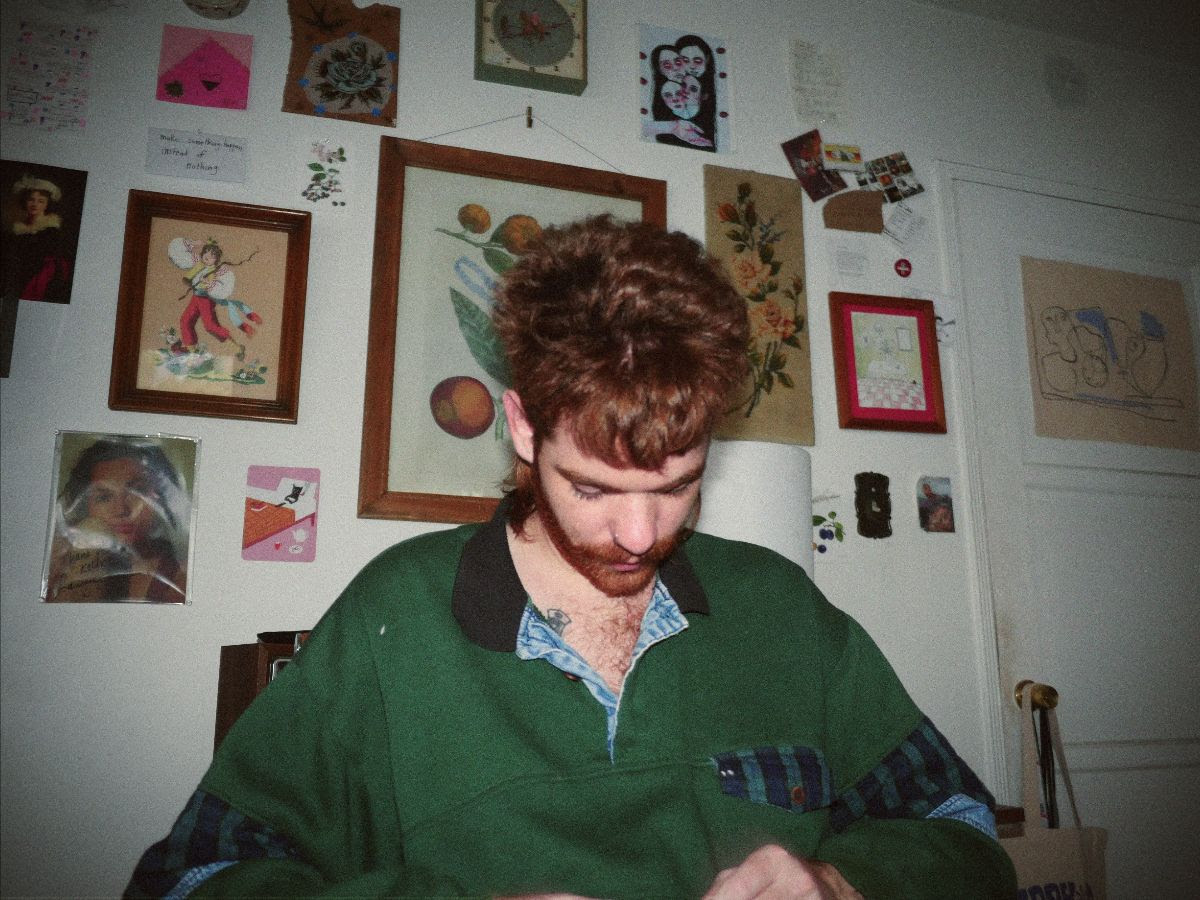
Like you said, some of these songs are four or five years old and some of them are brand new, but I think that the album still maintains a theme of getting older and looking back on your younger self. Was that intentional or did it just sort of come together that way?
It just sort of came together that way. And that’s why part of the press release is like, “This is a mixtape, this is a collection, blah, blah, blah, blah.” When I made the first version of it, it was kind of a mishmash of songs. When I started thinking about it more, I replaced some of those songs with other ones that had a more common thread. But not even because I realized at that time that they had a common theme — I just was thinking, “Well, I did record all these other songs, too. I think they might be better.”
Then when I finally heard it all together, it was sort of a wake up call for me. As people, we’re always looking back and hoping for a brighter future. It was really interesting to realize that in the songs I wrote when I was like 23, I felt the same way, even though the circumstances of my life were completely different. So it wasn’t intentional, but I do agree with you that [the songs] are all about the same shit.
Do you think that the pandemic has led you to more introspective songwriting or made you think about your own mortality more?
Not necessarily. I’ve been pretty keen to mortality forever. I was an original hypochondriac back in the day, so the pandemic definitely doesn’t help that neurosis of mine, but I don’t think my songwriting really changed that much.
So this is nothing for you.
Yeah, I’ve literally been worried about some weird, unknown virus or disease my entire life. So this is very normal, and everyone else is now on my page.
You tend to leak some of your songs on YouTube, and some of them never get official releases, but others, like ''TRANQUILIZED,'' do. Do you get shit from your record label for doing this or are they cool with it?
They don’t give me shit. I don’t think it’s their favorite thing that I do, but Run For Cover is really nice and supportive. Not a lot of people follow my YouTube or even know that it’s there. I have one song on there called “i feel inspired by the friendly orthodontist,” which is kind of a silly, journal entry kind of song. But then I’ll also put up “TRANQUILIZED” or like “i will not mourn who i was that has gone away” on YouTube as well. Sometimes it’s just a way for me to gauge if people engage with the songs, so it just helps me find out if they’re just weird and random or if they actually could mean something to a listener.
It’s almost like a stand-up comic going into a small club to test out material.
Yeah, that’s exactly what it’s like.
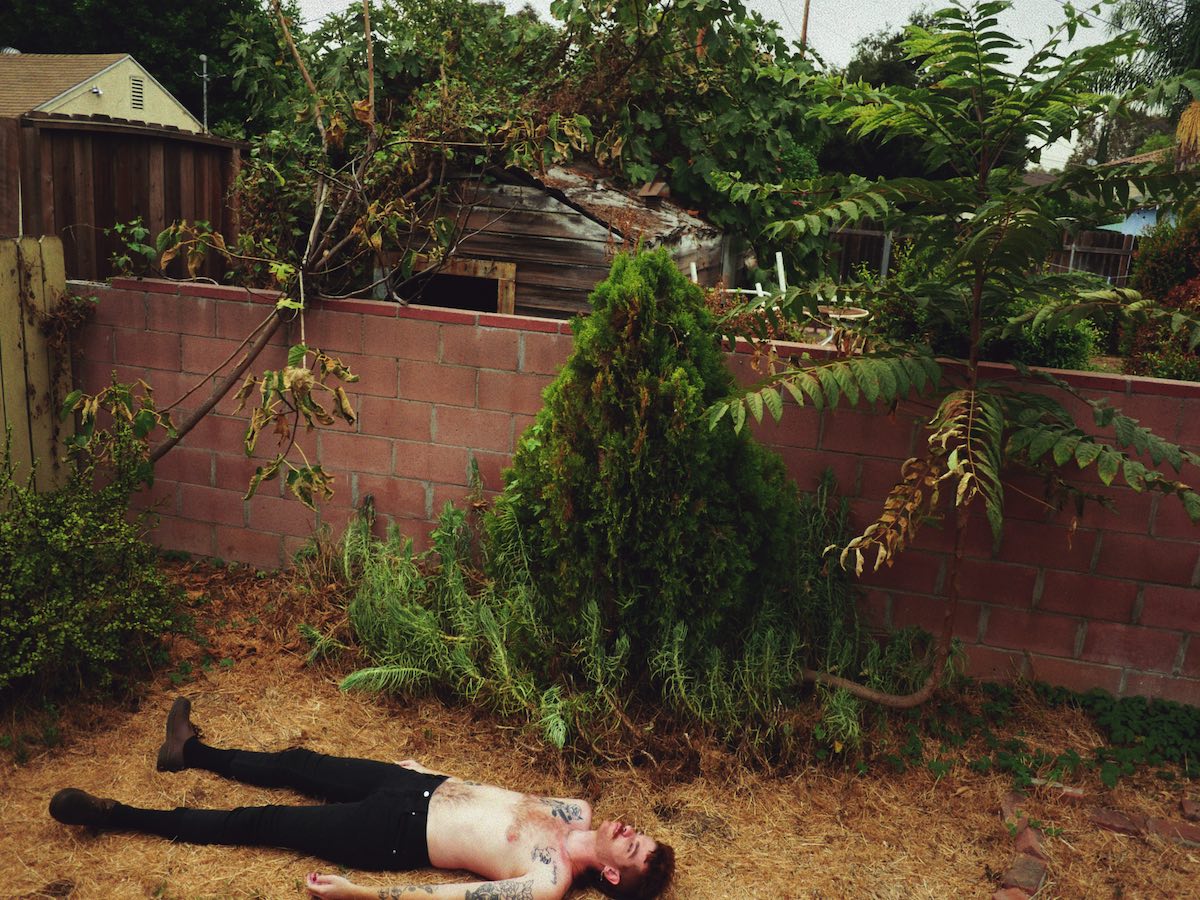
Besides putting stuff out on YouTube occasionally, do you ever show other people your songs before you release them?
I’ll show my roommate Derek, who performs as Derek Ted and does a lot of live recording for me. And I’ll definitely send SoundCloud playlists around to close friends, but I also don’t really show that many people or vet that many opinions because I have such an underlying anxiety that anybody saying anything will just spook me out to my very core. So outside of the close circle and the random people on YouTube, I don’t really show songs to anybody before putting them out.
You're pretty open about not being afraid to embarrass yourself in songs. Have you ever not put out certain songs because you thought they were too personal? Or does that boundary not exist for you?
The only songs that I had ever hesitated to release because they’re too personal are ones that were not all about me. Like maybe in a heat of anger or passion, I would write a song that’s sort of like pointing a finger at somebody else. So there’s times where I won’t put that out because I take a look back and realize that I’m just projecting my own emotion onto somebody else. It’s funny because I make these songs that are so personal and crazy, but it’s almost cathartic to me and sort of funny to listen back to. Although I feel very strongly when I’m making them, sometimes I listen back, and I’m just like, “Man, that lyric is so dark,” and it makes me laugh a little bit.
But no, I don’t really like to censor myself, and that certainly comes with a healthy helping of anxiety and confusion. Some people hear a lyric that’s really crazy and say like, “Oh fuck, I can’t believe you said that. I’ve totally felt that before.” And then some people hear that same lyric and go, “I can’t believe you said that. I’m no longer a listener. Is this too sketchy?” I always have to remind myself that I made the choice. I gotta trust myself — and I do — because I love it when people say crazy shit. So that’s why I do it.
I hear a lot of influences on Floral Prince, from Nick Drake to The Tallest Man On Earth. You even throw a Joni Mitchell reference in on “older now (it hurts).” What have you been listening to lately and who has had most of an impact on your songwriting?
Recently, like the last three or four weeks, I’ve only been listening to Bladee, and he’s obviously not folk music at all. I also mostly listen to metalcore. I obviously have all these influences from folk singers — all the ones you named and more — but I only listen to folk music about one day a week.
A lot of your aesthetic and merchandise has a metal vibe. I always wondered if that was almost satirical or ironic because your music does not necessarily fit that imagery. Does metal music have any influence on your songwriting, or is it more just something that you like to listen to?
It’s hard to say whether it has influence on the songs themselves. What I like about metal music is that it’s almost escapist for me. I don’t know if that’s true for everybody, but when I listen to music that’s so heavy and so brutal, it just calms me down. It takes me to a place that I don’t inhabit as a person, and it makes me feel like a tough guy. I like to listen to metal on my headphones with my shirt off and just like contemplate exacting revenge on anybody who might not like me or something like that. [laughs] I think it’s more influential in the sense that it helps me detach from the kind of music that I make. But then, it’s obviously influential on the merch design because I just like brutal shit. I like the way it looks because it’s so hyperbolically absurd, and I mean that in a good way.
Pivoting back to the record, in “older now,” you sing about avoiding the mirror. And then in “better way,” you sing about painting the mirror black. But a lot of the songs on the album are, ironically, very reflective.
I actually never thought about it like that, because to me, a song is a different reflection than like, an outward physical appearance. But yeah, that is very interesting. Part of the mirror thing is that I just always kind of felt like an outsider, I guess. In high school, I would try to dress like the cool kids. I could be wearing the exact same clothes, and I would just look weird. As it progressed, I had to start creating my own style, so now I have my own aesthetic that doesn’t really subscribe to anybody’s perception of what is cool or not. So even though in my strongest moments, I’m happy with myself and I’m proud, sometimes scrutiny from the outside strictly based on how I look will make me judge myself. It’s actually kind of fucked up now that I think about it.
You said that the only good song is an honest one. Have you ever tried writing about fictional characters like Billy Joel or Bruce Springsteen?
I have done some. I’ve been in a couple sessions where we’re trying to write pop songs for other artists, which is called toplining. And I can come up with lyrics because I’m so practiced in it, but it always feels really strange and doesn’t come off well. I think that I would be interested in shifting the perspective at some point, but for right now, and for the longest time, it’s always just been looking into my own wellspring of experiences and then hoping that maybe somebody who’s felt something similar goes, “Oh, shit, someone else has felt this too.”
Is it easy for you to write with other people or is it frustrating?
It can honestly be somewhat fun as a distraction, almost. It’s probably the case for anybody who’s along the lines of a confessional songwriter that after a while, it can be really exhausting to craft song after song about personal, morose subject matters. So it’s actually kind of fun sometimes to go into a studio and sit there with two other people. And we’re just wondering what the song is going to be about, and somebody throws out a word, and then we just play. But I don’t think that I would ever do that for one of my own songs.
Do you ever feel like you have to hold yourself back when you're writing with other people?
Yeah, but it’s less like holding myself back and more just recognizing that some of the ideas that come to me naturally aren’t going to work for somebody who’s trying to make a more generic pop song. So sometimes, if I’m in a session, I’ll throw out these crazy lyrics that are sort of weird, and the producer will be like, “I don’t know about that.” It’s just recognizing the difference between the two styles of songwriting.
Over quarantine, Evan Stephens Hall from Pinegrove covered your song “POWERFUL LOVE” on his Instagram Live. Do you ever see yourself collaborating with Evan? There’s a collaboration with Pickleboy on the album. Is that something that you want to continue doing in the future?
Yeah, absolutely. I think that something with Evan would be great. My friend Derek [Ted] and I always talk about doing an EP together. It’s definitely something I’m open to, but I’ve found that with collaborations, it’s just has to happen naturally. There’s been so many times that I’ll be talking to my musician friends about wanting to make a song together or something. And then we’re hanging out, and one of us is holding a guitar, and we’re like, “Alright, let’s write a song.” Then we just kind of sit there and scratch our heads.
My favorite song on the record is “it's so lonely being sober,” and I've been thinking about it in the context of songs from previous albums like “the bottle’s my lover, she’s just my friend” and “tournament horseshoe.” When you look back on older songs about alcoholism, does it make you uncomfortable that you've been so open about your struggle with addiction?
It’s sort of an interesting saga to see. Now that you mention it, there are all these songs that reference the same thing in different ways. Interestingly enough, I tend to learn a lot about myself through the songs I make. Like I said, “it’s so lonely being sober” was almost subconscious. Now that I’m remembering all those other songs, I think it’s actually cool. But the sad part is that at the end of the race, when you get the award, you’re so lonely.
That's why the song is so brutal, because it should be a happy song. But it’s very real.
I’m glad to hear that. Thank you. I wasn’t sure if it was too brutal to put out, and that was one that I did release on YouTube, and several people were like, “I really relate to this.” So that’s why I decided to put it on the album.
Getting sober, you have to face a lot of demons that you were just drinking away, and you recognize that society has normalized drinking so much that you are convinced that it’s actually not that bad. But when you look at it, it’s actually really fucking dangerous, and it fucks up a lot of people’s lives.
What was it like for you playing at small clubs and bars where you're constantly surrounded by alcohol?
It was brutal. In 2016, I moved out of San Francisco to live on my friend’s couch in LA because we saw an entry point to be more serious about music. I left San Francisco because I had fallen into this pattern of binge drinking. I worked at a coffee shop, and I could manage working there hungover. So I came to LA to try and dry out, and then all this stuff happened with Run For Cover, and I wound up being flung on tour within six months of coming here. And then I was on tour for almost two years straight with maybe a couple weeks or a month at most in between tours, which is amazing. But as I said, I was still struggling with alcoholism when I came to LA in the first place. Being on tour, you have a greenroom that’s full of unlimited free booze, and on top of that, people at the show want to buy you booze, and they want you to come to their house and party afterwards. It was really brutal to be honest with you, but it was also my choice. I chose to drink. And I’ve toured with plenty of people that could moderate their drinking or not drink at all. For me, touring put me over the edge because I felt like I was running up a hill at full speed. And even though I knew that my body was getting injured and my mental health was suffering, I knew that I had to keep going. At the time, it felt like the one thing that could help me keep going was the alcohol, which would numb the pain and get me to the end goal, which is to make it in the game.
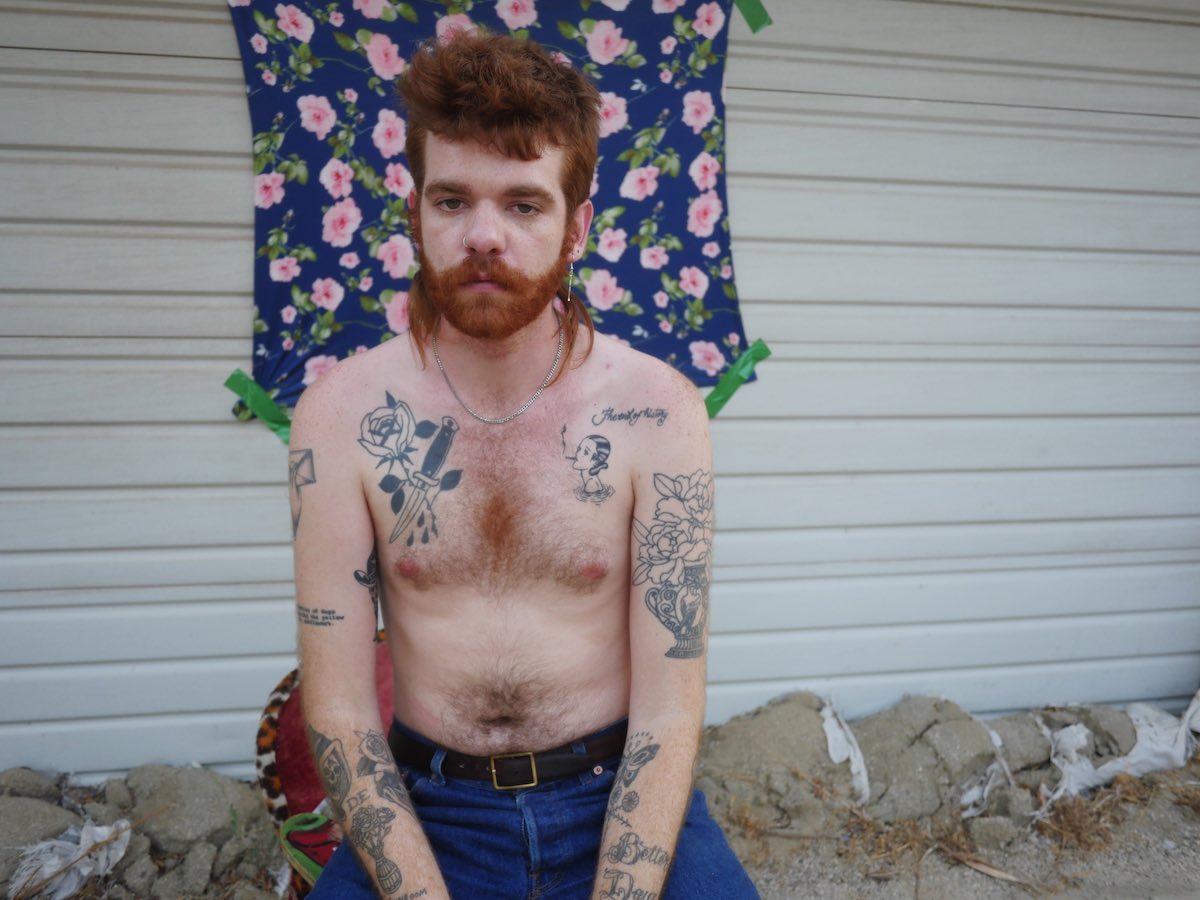
How has it been overall, getting sober and coming out with Floral Prince?
It’s been interesting because I was sober last year for seven months. That’s when I actually wrote and recorded “it’s so lonely being sober.” I had been sober for two months or something, and I got to a point where I was actually really happy and healthy. And then I fell into the trap that a lot of people that suffer from alcoholism do, where I got to the point where I thought I’d be okay to drink a little bit. So in March, midway through the last tour, before the world got all fucked up, I started drinking again with the intention of stopping when I came back home. But then when I got home, COVID had begun, and anxiety was high. I had already reopened the evil addiction demon in my head. So for the first four and a half months, I was like, “One more day, one more week.” You know, like, “I’m gonna stop drinking on Monday.” I wound up even worse off than I was before. I was drinking in the morning. I was so depressed and so spooked out. And then I finally quit. So now I’m about 72 days sober again, which is nice, that I was able to do that before the record came out and have these kind of conversations because so much of the album focuses on that. It’s definitely not without its challenges, and I have some of that newly sober anxiety that I’m still wrestling with, especially in the midst of the pandemic, that I didn’t really have to deal with the first time around. It’s an everyday challenge that you have to deal with and just not take that first drink, but it’s better.
Well that’s awesome, congratulations. Onto a different subject, when you were recording fade into the dawn, you said that you were having trouble appreciating the songs for what they were because you were being so precious about your old music. Did you have the same issue while making Floral Prince, or have you had enough time to sit with these songs so you can look at them from a more removed point of view?
That’s a really good question. When I was recording the original version of Floral Prince, I was having a little bit of spookiness. And then I read this enneagram book that my my dad recommended, and it sort of pointed out everything that I was worried about, which is weird. The short answer is no. There was a moment where I was nervous, but I just realized that you can’t look back. And that’s what the song “i will not mourn who i was that has gone away” is about, like sitting in my alcoholic stupor saying, “God, I wish I was like 23 in the Mission District of SF doing slam poetry, but instead I’m just sitting here wallowing in my own sorrow.” So that song helped me move through those feelings. A lot of the songs on the album I had written a long time ago and just never released, but what’s been really interesting and nice for me to hear is that the songs that listeners seem to like the most are the new ones. So that just reiterates the fact that there’s nothing to worry about.
“i will not mourn” is such a cathartic song, and I think it pairs well with “it's so lonely being sober” because it's about being okay with shedding old parts of you — being okay with getting older and changing things about you. I almost look at “i will not mourn” as the centerpiece of this album.
I totally agree with that. That’s also why, in the chorus, I’m shouting that statement. It’s not a sad song. It almost sounds triumphant, even though the lyrics are very reflective, and there is some sadness there.
You've been playing songs on Instagram Live throughout the quarantine. Is it weird not being able to see your audience, or do you enjoy doing virtual shows?
I had been touring so much that I was burnt out before all this happened. It’s funny to take things that are actually really great for granted sometimes. I didn’t realize how much touring was interlocked with my identity, knowing that I had to go do something in three weeks or a month and sort of having a purpose. So I think playing Instagram Live shows or just live streams in general is kind of fun, but it’s definitely not the same as being somewhere new every night and getting to really interact and engage with people.
Do you have any set plans for what you're going to do in terms of new music or touring? Or are you just taking it day by day?
It’s a difficult question because Beach Bunny and I rescheduled our UK tour to next April. So hopefully, touring is fine by then, but if not, that’s pretty brutal. As far as music goes, I’ve been asking myself that same question, because it seems that when full tour comes back, there probably will have been enough time for me to have written and recorded another album. So do I start? And at that point, do I just delay the Floral Prince world tour by a year? Or do I just make another album and tour that? I’m not sure. I think I’m obviously gonna get to work, writing and recording music as soon as the inspiration strikes. How it will come out, I’m not sure.
— —
— — — —

Connect to Field Medic on
Facebook, Twitter, Instagram
Discover new music on Atwood Magazine
? © 2020
:: Stream Field Medic ::

